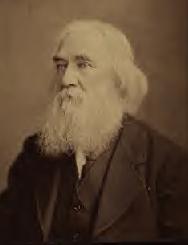 1. On my first trip to FEE it was frustrating to fly into NYC and then be able to spend no time there, so on my second trip, two weeks ago, I made sure to stay overnight in NYC so I’d have at least a few hours. I had dinner at the Evergreen restaurant (10 E. 38th), but it seems to have declined since I was there a year ago (their Amazing Crispy Duck was truly amazing last time, but merely good this time.) I was pleased to see a copy of my book Reason and Value: Aristotle versus Rand on the shelf at a Barnes & Noble, especially since it’s been on back order at the Atlas Objectivist Studies Institute Center Society for, like, ever.
1. On my first trip to FEE it was frustrating to fly into NYC and then be able to spend no time there, so on my second trip, two weeks ago, I made sure to stay overnight in NYC so I’d have at least a few hours. I had dinner at the Evergreen restaurant (10 E. 38th), but it seems to have declined since I was there a year ago (their Amazing Crispy Duck was truly amazing last time, but merely good this time.) I was pleased to see a copy of my book Reason and Value: Aristotle versus Rand on the shelf at a Barnes & Noble, especially since it’s been on back order at the Atlas Objectivist Studies Institute Center Society for, like, ever.
The next morning I checked out of my hotel and headed to the Metropolitan Museum of Art (after first leaving my bags at a handy luggage storage service, since the Met doesn’t store large bags). This was my first visit to the museum, and I was pressed for time and had to do an unsatisfactory mad dash through the collections, but it was still terrific. Then after a nice Turkish lunch at Akdeniz (19 W. 46th) I took the train up to FEE, where I had a good time and commented on some interesting junior faculty papers. It was nice to see, inter alia, Pete Boettke and Dan D’Amico.
 2. There isn’t too much to report from my APS trip last week that I haven’t already mentioned, but I can say that the Orange Beach/Gulf Shores area finally seems to be entirely recovered from its battering four years ago. I hung out with Kelly and his family, and with two of our majors Andy and Rob (who turn out to be fellow fans of Coupling, a show much better and funnier than its Wikipedia entry might suggest).
2. There isn’t too much to report from my APS trip last week that I haven’t already mentioned, but I can say that the Orange Beach/Gulf Shores area finally seems to be entirely recovered from its battering four years ago. I hung out with Kelly and his family, and with two of our majors Andy and Rob (who turn out to be fellow fans of Coupling, a show much better and funnier than its Wikipedia entry might suggest).
3. As previously mentioned, this past weekend I was in Boston for a Liberty Fund conference on Lysander Spooner (in honour of his bicentenary), where I also saw my old comrades Eric Mack (with whom I visited Quincy Market for a quick lunch), Randy Barnett, Aeon Skoble, and David Hart. The seemingly endless construction down by the wharf (which was underway when I was living there in the early 80s, and was still underway, with virtually no progress visible, during my last visit a few years ago) now seems to be finally mostly over.
On Thursday we watched the Palin-Biden debate in the hospitality suite; I was somewhat disappointed that neither one embarrassed him/herself too badly. Palin even got in one good line; when the moderator mentioned that Palin had said she didn’t know what the vice-president did, while Biden had said that he would not accept the vice-presidency, Palin told Biden: “In my comment there, it was a lame attempt at a joke; and yours was a lame attempt at a joke, too, I guess, because nobody got it.” And Biden made an inadvertently funny remark when he sounded as though he were saying that a Biden presidency itself (rather than simply its resulting from Obama’s death in office) would be “a national tragedy of historic proportions.” Otherwise the debate was soul-destroyingly boring – which, given the two candidates’s reputations as loose cannons, was probably the best that their handlers could hope for.
 On Friday I took the T up to Harvard. The last time I went by my freshman dorm there was an American flag up in my window (ack!); happily gone now. Alas, some of my favourite Harvard-area bookstores are gone too, though others remain.
On Friday I took the T up to Harvard. The last time I went by my freshman dorm there was an American flag up in my window (ack!); happily gone now. Alas, some of my favourite Harvard-area bookstores are gone too, though others remain.
Good news for Austrians: while even in better bookstores one finds, as a rule, one or two books at most by Hayek, and none by Mises, the economics section of the Harvard Coop had eight separate titles from each.
On Saturday we first drove past Spooner’s house at 109 Myrtle Street, and then headed out to Forest Hills Cemetery, where we saw not only Spooner’s gravesite (with a monument added by Randy Barnett) but also those of his fellow abolitionist/anarchists William Lloyd Garrison and Colonel William B. Greene (not, as Aeon reminds me, to be confused with that other Colonel Green).
 Speaking whichly, at the conference I met film producer Sky Conway, with whom I’d previously communicated only by email; he gave me a copy of his low-budget, libertarian-oriented independent Star Trek film Of Gods and Men, which stars a number of characters from the show (played by the original cast members), including Uhura, Chekov, and Tuvok. I’ll report on it as soon as I get a chance to watch it; in the meantime, check out the trailer.
Speaking whichly, at the conference I met film producer Sky Conway, with whom I’d previously communicated only by email; he gave me a copy of his low-budget, libertarian-oriented independent Star Trek film Of Gods and Men, which stars a number of characters from the show (played by the original cast members), including Uhura, Chekov, and Tuvok. I’ll report on it as soon as I get a chance to watch it; in the meantime, check out the trailer.
4. In other news, my fifth AOTP post went up on Friday: History of an Idea; or, How An Argument Against the Workability of Authoritarian Socialism Became An Argument Against the Workability of Authoritarian Capitalism.
Some new Watchmen footage (well, partly new) is online. (Conical hat tip to AICN.) And it continues to look good; I just hope the State lets us watch it.
 I gave a midterm in class today, and I’d planned to leave right after. But while I was invigilating (as the British say) the midterm, I was reading Michael Thompson’s new book
I gave a midterm in class today, and I’d planned to leave right after. But while I was invigilating (as the British say) the midterm, I was reading Michael Thompson’s new book